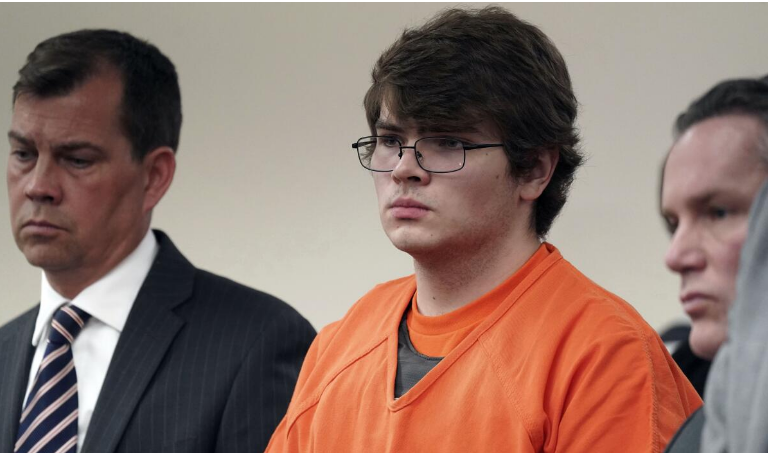In a chilling turn of events, the Justice Department has announced its intention to pursue the death penalty for Payton Gendron, the 19-year-old responsible for a racially motivated shooting at a Tops Supermarket in Buffalo, New York, in May 2022. This heinous act claimed the lives of 10 individuals and left an indelible mark on the community. The case, driven by apparent racism, has sparked discussions about the appropriateness of the death penalty in extreme instances of hate-driven mass violence.
The Hate-Fueled Massacre:
The Justice Department revealed its decision to seek the death penalty for Gendron in a court document, citing his deliberate killing of ten people, causing harm to others, and participating in actions leading to death—all driven by blatant racism. The charges include 10 counts of hate crimes resulting in death, three counts of hate crimes involving attempted killings, and one hate crime count alleging Gendron’s attempt to harm additional Black individuals in and around the Tops grocery store.

Legal Proceedings and Indictments:
Gendron’s legal journey began with a 27-count indictment in July 2022, accusing him of multiple violations of the Matthew Shepard and James Byrd Jr. Hate Crimes Prevention Act, along with firearms violations. The federal grand jury presented charges that painted a grim picture of a hate-fueled massacre that shook the Buffalo community and reverberated throughout the nation.
Attorney General Garland’s Dilemma:
Attorney General Merrick Garland, who has expressed concerns about the death penalty in the past, finds himself in the midst of a complex decision. While the moratorium on federal executions, initiated in July 2021, is still in effect, the case of Payton Gendron forces a reevaluation of when the death penalty is deemed appropriate, especially in instances of extreme hate-driven acts of terror.
Family Reactions and Mixed Sentiments:
The family members of the victims were informed of the Justice Department’s decision to pursue the death penalty in a meeting on Friday. While some expressed satisfaction with this choice, others, like Mark Talley, whose mother was a victim, conveyed a sense of ambivalence. Talley stated, “For me, I want something worse than that,” implying that a death sentence might be viewed as an escape for the defendant.
Gendron’s Guilty Plea and State Sentencing:
Gendron had previously entered a guilty plea to 15 crimes, including murder and attempted murder, and was sentenced to life without the possibility of parole in February 2023 on state charges. The state sentencing, which accounted for each victim’s life taken and the injuries inflicted, marked the beginning of legal consequences for the perpetrator.
Read More News:
- Divorce Challenges: Unpacking Gender Imbalances in Oregon’s Legal Landscape
- New York State Braces for Severe Weather: Comprehensive Analysis of the Thruway Vehicle Ban
- Addressing the Homelessness Crisis in Dallas: A Complex Challenge
As the Justice Department pursues the death penalty for Payton Gendron, the Buffalo store attack remains a stark reminder of the deeply rooted issues of racism and hate in society. The legal proceedings will undoubtedly prompt discussions on the role and appropriateness of the death penalty in addressing extreme acts of violence. The community watches closely as justice seeks to navigate the complex terrain of punishment and accountability in the aftermath of this tragic event.

